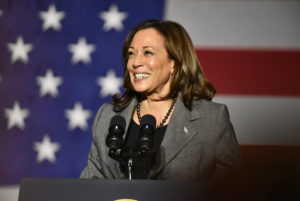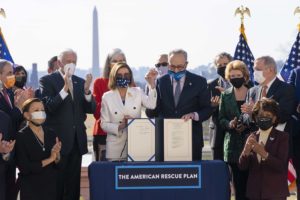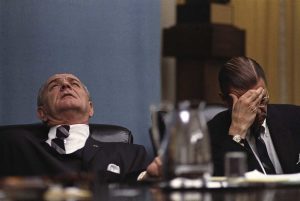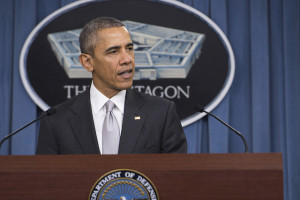
U.S. Vice President Kamala Harris
At President Joe Biden‘s State of the Union address last Thursday night, many viewers noticed Vice President Kamala Harris seated behind Biden’s right shoulder, looking radiant, mature, and even presidential. This visual was a good reminder that the time for Democrats to raise Vice President Harris’ profile, and to boost her future presidential prospects, is now.
First, it should be noted that being Vice President is often a thankless job. Nearly 100 years ago, then-Vice President John Nance Garner stated that the vice presidency “isn’t worth a bucket of warm spit,” although many historians have indicated that the real word Garner used was not “spit.” More recently, biographer Robert Caro described in detail how Lyndon Johnson went from being one of the most powerful people in America as U.S. Senate Majority Leader, to being left out of nearly all important meetings and decisions as Vice President under President John F. Kennedy.
However, according to Caro, Johnson accepted the job of Kennedy’s vice presidential running mate in large part because he researched and determined that a significant number of presidents did not complete their full terms, usually because they died in office, and that, accordingly, numerous vice presidents had succeeded to the presidency. That is in addition to the vice presidents who went on to win election for president after their predecessors completed their terms. This is exactly what happened to Lyndon Johnson in November 1963, when President Kennedy was assassinated. Johnson served the remainder of Kennedy’s term, then went on to win re-election in 1964 by a huge landslide. Since Johnson’s presidency, one Vice President, Gerald Ford, automatically became president in 1974 when President Richard Nixon resigned under threat of impeachment and removal by Congress, and another Vice President, George H.W. Bush, won the presidency after serving two terms in his job. Joe Biden also was elected president after he had completed two terms as vice president under President Obama, with Donald Trump‘s single term taking place after the Obama presidency.
All of this is relevant because, if and when President Biden gets re-elected this November, he will be 81 years old, turning 82 that same month (it should also be noted that Trump is almost the same age, turning 78 this June). Therefore, as a simple actuarial matter, Kamala Harris needs to be prepared for the possibility that she might be called on to step into the presidency at a moment’s notice sometime before January 20, 2029. Additionally or alternatively, Harris will be the likely Democratic presidential front-runner in the 2028 elections.





